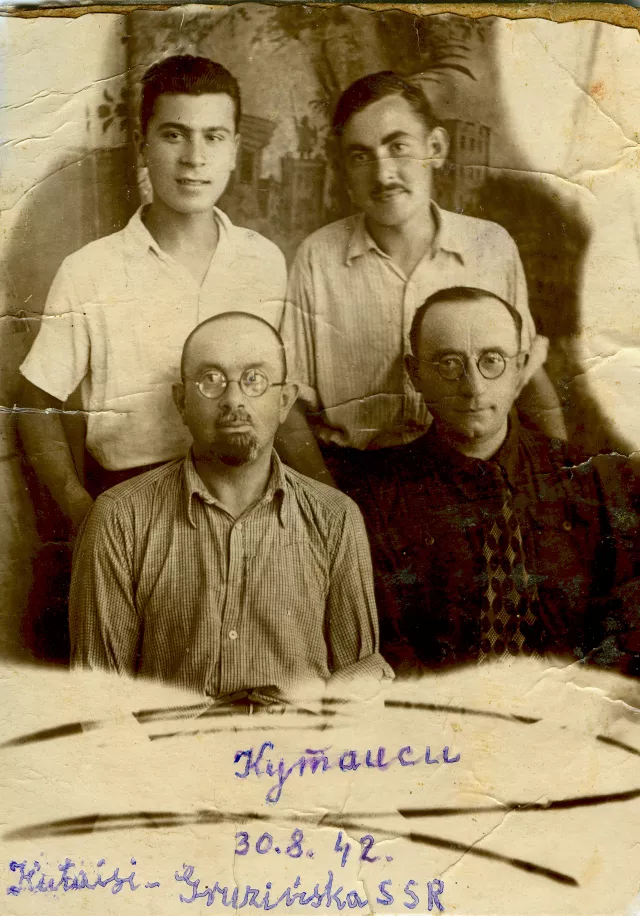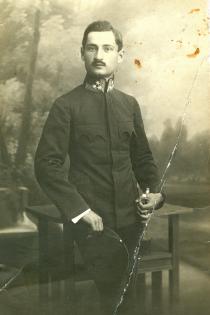Daniel Bertram, Abraham Lamesdorf, Dawid Kos Klajman and unknown man
This is the only photo I have brought from Georgia. It's a picture of me (first from the left in the top row), Abraham Lamesdorf, Dawid Kos Klajman and a man whose name I don?t remember. The photo was taken on 30th August 1942 in Kutaisi.
I had a few friends in Georgia. On the whole they were good people, though a bit selfish. The oldest one, in glasses, with the Lenin beard, was from Podgorze [then a town near Cracow, now a district of Cracow]. He was an artistic signwriter, could turn his hand to anything and did very well for himself. He promised me that I would be his partner. That was Abraham Lamesdorf. His wife had stayed behind; she died with their son, probably in Belzec. My other friend was called Dawid Kos Klajman. He had two names, I don't know why; I think he was some kind of salesman. He said he came from Brygl. Brygl, I think in Polish that must have been Brzesko. He never said it in Polish, all he said was Brygl. He had a secret from us: he had a lady friend, who fed him, and he was at her place all day long, after work, of course. We didn't keep tabs on whether he went to the synagogue on Saturday or not. But it was a small town; it was uncomfortable in that little town to be seeing a non-Jew. Especially because on Saturdays and holidays I went with the friend I talked about to the synagogue. There was no one else from among our people at the synagogue, only the two of us.
We went regularly, but we didn't have access to the 'liye' [according to Mr. Bertram the word used in prewar Cracow for 'aliyah' - going up the bimah to read the Torah]. We didn't have any money, and you had to pay an awful lot. And the hakham called people up. It went to the highest bidder. 'Assima naty, to...orrasi manaty, sammassi manaty... tiskula mitzvah'. That was what he said, in Georgian and Hebrew. 'Tiskula mitzvah' means 'you will be doing a good deed', or 'commandment'. And what I said at the beginning, that was the bidding. 100 rubles... 'mana' is rouble [in Georgian]. '100 rubles, 200 rubles, 300 rubles.' We couldn't afford such luxuries.
There was a time, you see, when I didn't even have enough money for breakfast. I went through a whole month like that, and they persuaded me to sell my Tissot [a watch-brand] that I'd been given by my father when I graduated from school. Well, I sold it. I wanted 5,000 rubles, but I only got 3,400 or 3,500. And then I had to give my two housemates some money to buy oil, for arranging the sale.


























